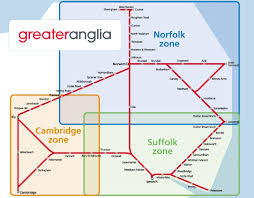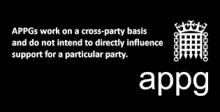Work TV
Watch our TV Channel dedicated to the ‘World of Work’. Explore our video library for informative videos featuring career opportunities at leading companies, franchising opportunities, further education and recruitment professions and their services.
Simon Collyer
Supreme Court Rules on Parents Taking Kids On Holiday Term Time
The Supreme Court has found in favour of a local authority that has fined a parent for taking his daughter on holiday during term-time. Commenting on the news, Liberal Democrat Shadow Education Secretary John Pugh said:
“Today’s judgment was disappointing but the ball is back in the government's court, they could act and change the law and bring back sensible rules with proper safeguards in place. Nearly 20,000 people have been prosecuted and caught in a dragnet by these laws in the last year.
“Many employees have no choice when to take their holidays. People in some areas have to work all through the summer at the height of the tourism season.
“Others simply cannot afford to go on holiday at peak times, when the cost of holidays goes through the roof. So, it's vitally important to offer more flexibility to schools and headteachers to help families who need to take a break together.
“We believe that headteachers should be allowed to grant up to 10 days of term-time absence in special circumstances".

Image: John Pugh, Liberal Democrat Shadow Education Secretary
Two Child Limit and Rape Clause Comes Into Force
A two child limit and rape clause for tax credits came into force today, which a campaigning MP says will unleash untold chaos and poverty for 'just about managing families' and rape survivors.
In July 2015, the then Chancellor of the Exchequer, George Osborne, announced in his summer budget plans to slash child tax credit payments to just two children per family and implement a 'non-consensual sex exemption', dubbed the rape clause.
The new policy, which came into force at midnight last night, requires tax credit claimants, whose third or subsequent child was conceived as a result of rape, to prove this to social workers and health professionals in order to qualify for the exemption.
Faith leaders, women's welfare groups, trade unions and child poverty campaigners have all condemned the policy, with many sexual violence support charities refusing to act as third party verifiers for the Government.
Job Track Helps to Get Jobseekers to Job Interviews
Job Track is a innovative scheme run by Greater Anglia to help get people back to work. It's run in conjunction with Job Centre Plus and Igneus to help get people to interviews and even help them with their first 2 months travel to a new job.
Greater Anglia have also introduced Job Track for Students to help those going out into the employment world for the first time attend interviews and provide two months’ worth of free travel to their first job.
If Job Track is for you then please click on "Job Track for Job Seekers" or "Job Track for Students" click on the image below.
You need to be eligible for the scheme. To be able to join up, you must:
Have been unemployed for the last six months (with official proof of unemployment)
Be actively seeking employment with either Job Centre Plus or Ingeus
Be unemployed at the time of application (we do not accept applications from people who already have an active job offer)
If you are eligible, download the application form from the link above and send it through to the Freepost address on the application form.
Once your membership is approved, you will be sent your details of your username and password. (Please note that you may need to check your Junk / Spam email folder if you think you haven't heard from us as it depends on your filter settings as to how our email to you is treated). You can then apply for tickets to attend job interviews - just follow the instructions on the ticket ordering page. It's that easy!
When you are supplied with tickets, you will normally need to pick them up at either the ticket office or a ticket machine where you start your journey. Greater Anglia will send you details of how to do this upon each successful ticket application.
Coventry Council Feeding Britain Initiative
Coventry City Council will host a meeting this Friday (7 April) with other UK areas involved in a pilot project to tackle food poverty.
‘Feeding Britain’ was introduced by the independent charity, the All Party Parliamentary Group, and seeks to broaden local awareness of food poverty, discuss and promote new ideas to combat food poverty, and help create sustainable food networks. Coventry, Sheffield, Birkenhead and Bristol are some of the areas involved in the pilot scheme, set up in November of last year.
The scheme includes 12 boroughs, towns, cities, counties and regions across the UK, which all operate slightly differently from one another.
Longer term the project will help shape national policy reform and alleviate hunger at a local level.
The meeting will bring representatives from pilot projects together to discuss how the scheme is working and to develop common agreements on sustainable food practices.
In Coventry it is estimated that around 20% of the city’s residents live on the breadline and more than one in four children live in poverty.
Gavin Kibble, founder of Coventry Foodbank, said it was an opportunity to set up long term solutions to food poverty. He said: “We want to promote what has been learnt, how issues are dealt with presently and how we look to the future to find solutions to addressing food poverty. The scheme is about creating something that is sustainable.”
Some practical ways in which the scheme hopes to alleviate hunger includes increasing the number of food banks and community kitchens, and increasing access to healthy affordable food. Examples include introducing auto registration for free school meals and community food growing for low income families.
Friday’s meeting will highlight the progress different areas are making and their approach for the future.
Colin Anderson, who wrote up a report on food poverty at Coventry University, said that initiatives such as food banks are a good short term solution but are not enough. He said: “It is vital that the discussion moves much further along to focus on addressing inequality and poverty as the root cause of hunger.”

Image: Colin Anderson, Coventry University
Coventry’s scheme is led by the Feeding Coventry Partnership. It includes: the Centre for Agroecology, Water and Resilience, Coventry University; Citizens Advice Coventry; Coventry Food Banks; Coventry City Council; and Warwick University.
The pilot is aiming to implement four activities including: building food security; protecting people from hunger; making low cost food available for vulnerable people; and supporting people in crisis.

Image: Partnership for Coventry
English Nursing Courses Down 23%
Latest UCAS figures have revealed the deep damage that Tory government cuts are having on the nursing sector in England – with applications to English nursing courses down 23% this year, after the UK government abolished bursaries that encouraged people to take up training.
The Scottish Government has taken a different approach towards nurse training, retaining the nursing bursary, maintaining free tuition and continuing to offer the discretionary hardship fund. The number of Scottish applicants remained relatively steady.
The decision to abolish the nursing bursary in England compounds the damage that the Tories are inflicting on the NHS in England, with the fall in student nurse numbers coming alongside the impact of Brexit and the Tory refusal to confirm that EU citizens will have the right to remain in the UK after Brexit – which has led to record numbers of EU citizens leaving the NHS last year.
Public Accounts Committee Report Criticizes Concentrix
The Public Accounts Committee has published a scathing report into the mismanagement of the tax credits renewals system which saw thousands of families wrongly stripped of their benefits.
The report concludes that the problems were entirely predictable, but that neither HMRC or contractor Concentrix are prepared to take responsibility.
Liberal Democrat MP and member of the Public Accounts Committee John Pugh commented:
"This whole sorry affair was a disaster from start to finish, but it could have been prevented if the Government had acted sooner.
"Thousands of families were left out of their pocket and struggling to pay their bills through no fault of their own.
"HMRC shelled out millions to Concentrix while people were being failed on an industrial scale.
"It's time for the Government to accept responsibility for what happened and ensure it doesn't happen again."
The Horse is Bolting - Lloyd's Bank Sheds Branches
Lloyds Bank has announced plans to shrink hundreds of its branches in size, in some cases boarding up the old counter sections. Commenting on the news, Shadow Chancellor Susan Kramer said:
“Lloyds and other banks are turning their backs on the communities that have been the foundation of its business for generations.
“Yet again though rural areas are set to be the worst affected by the bank closures, even though broadband connection speeds are still lagging behind in these places. This just shows yet again the urgent need for the Government to make real commitments to a strategy for rebuilding genuine community and local banking as well as on increasing broadband speeds.”
Green Party Hit The Spot
Well reported in the press already.
The Green Party has announced plans to investigate the possibility of a three day weekend.
In their speech to Spring Conference this weekend (Friday 31 March) Jonathan Bartley and Caroline Lucas promised to look into “radical” new policies to “redefine the relationship between work and life” and address the reality of 21st Century working practices.
Caroline Lucas said to Conference:
“We need a political movement that redistributes both money and power. One that redefines the relationship between work and life.
“One that embraces the future. Pioneering and forward facing. A future better balanced between what we own and who we are – and more focussed on what genuinely makes us happier.
“A future of radical innovation and creative disruption. That embraces a 3-day weekend, and a universal basic income.”
The party
Speaking after Conference Caroline Lucas said:
“There’s a lot of evidence that suggests that when people are exhausted their productivity goes down.
“We are now the sixth largest economy in the world. People are working ever more hours getting ever more stressed, ever more ill health and mental health problems.
“What we want to do is take a step back and think, what is the purpose of the economy? What kind of country do we want to be? And do we really want a future where all of us are trying to work even harder, taking our work home with us and working evenings and weekends.”
ACAS Early Conciliation
Acas are the employment relations experts and a trusted source of advice for employers, employees, Government and others.
The Government has introduced several new changes in employment law in 2017. Brief details of these changes are listed below. The Advisory, Conciliation and Arbitration Service (Acas) runs a scheme to try to resolve a dispute before it goes to an employment tribunal. This process is free and confidential and is called early conciliation. You must contact Acas to tell them that you intend to bring a claim before you can present a claim to an employment tribunal. This does not mean that you have to take part in conciliation. You only have to notify Acas of your potential claim.
Which disputes does early conciliation apply to?
Early conciliation applies to most employment disputes, including claims for:
- unfair dismissal
- workplace discrimination
- redundancy payments or disputes over selection procedures
- deductions from wages or unpaid notice or holiday pay
- rights to time off or flexible working
- equal pay
These are:
Statutory payments - April 2017
| Maternity/Paternity/Adoption | £140.98 |
| Sick pay | £89.35 |
| Lower Earnings Threshold | £113 |
| National Living Wage | £7.50 |
| National Minimum Wage | |
| Workers aged 21-24 | £7.05 |
| Workers aged 18-20 | £5.60 |
| Workers ages 16-17 | £4.05 |
| Apprentice rate | £3.50 |
Jobcentre Plus Launch New Schemes For Disabled
The Personal Support Package – Community Partners
Community Partners will be introduced to jobcentres in a phased approach from April to August 2017.
-They will provide expert knowledge of disability to enhance the support we provide to claimant
-Give advice and support to work coaches and Disability Employment Advisers in all areas of disability
-Raise awareness of the effect a person’s disability can have on finding and keeping a job.
The Community Partner role will vary to ensure that the support provided in each district can meet the needs of the claimants there.
The Personal Support Package – Small Employer Offer
The Small Employer Offer gives Jobcentre Plus the opportunity to raise awareness with small employers of the support available to them when employing a person with a long-term health condition or disability.
102 new Small Employer Advisers (3 per district) will work with local small employers and work coaches to provide support for small employers and their new employees.
The advisers will:
-work with small employers to develop and maintain relationships
-ensure the correct person is referred to a vacancy or work experience opportunity
-support employers and their employees when completing Access to Work applications
The Personal Support Package – Access to Work
Access to Work gives financial support to help eligible people with a health condition or disability to:
-take up a job offer
-retain employment
Currently, people with a mental health condition can receive 6 months of support via the Mental Health Support Service to start a new job.
As part of the Personal Support Package, there will be 1,000 extra Mental Health Support Service places for:
-new Employment and Support Allowance claimants from 3 April 2017 in the work-related activity group
-those with limited capability for work in Universal Credit, who have a job start date
Approximately 50% of people in these groups have a mental health condition and referring candidates who obtain a job offer can help make their transition more sustainable.
The Personal Support Package – Work Choice
Work Choice is a voluntary employment programme designed specifically for people who, due to their disability, may find it difficult to find or keep a job.
Work Choice is delivered for DWP by external contractors and has effectively provided support, with job outcome rates seeing a steady improvement since the programme was introduced.
From 3 April 2017, extra places on Work Choice are being funded for people who have limited capability for work and are not eligible for:
-the work-related activity component in Employment and Support Allowance
-the additional payment for having limited capability for work in Universal Credit, but who will be work ready within 12 months.
Referrals to Work Choice will end when the new Work and Health programme starts in November 2017.
























